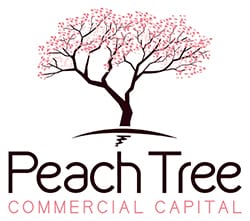Running a small business takes a lot of time, effort, and most importantly, money. While most entrepreneurs can devote all the time and energy they have, capital is where many startups fall short. A big reason that these fresh-faced companies struggle to get the cash they need is that banks and traditional lenders see them as too great a risk to invest the paychecks of their everyday customer.
To some extent, these lenders are right. Regardless of your market and industry, starting a business is inherently a risky proposition, and most banks don’t want to sink money into a startup that doesn’t have legs.
Enter private lenders.
For many startups, the best route to getting capital is to talk with high-risk commercial investors. These people understand what it takes to get a business off the ground, and they can see the potential of your startup or small business, whereas a bank will only focus on the numbers. Typically, it takes a few rounds of investing to get the cash necessary to stay afloat, which is why new entrepreneurs must know what to expect.
If you have a medium-sized business with some credit history, then you’re in a somewhat better position, particularly when talking about traditional lenders. Angel investors can still provide a helping hand, but you have many more options available when you have something tangible to show off.
So, with that in mind, we want to outline how to prepare your business for a private commercial loan. While a bank can sometimes work for your needs, they usually require collateral, such as your house. Assuming that you don’t want to give your home to the banks, private commercial lenders are often a better option. Here’s what you need to prepare beforehand if you’re going to make a good impression.
Business Plan
You’d be surprised how many startups don’t flesh out a solid business plan. This document is a road-map for your company’s success, and it illustrates how you plan to get from point A to point B. Without a comprehensive business plan, how can you be sure that you’re on the right path?
Some of the critical elements of a business plan include:
- Company Description – are you an LLC or a corporation? Offer some history about your business, including your potential market and growth potential.
- Products and/or Services – what are you selling? What kind of demand is out there, and what are you offering that the competition isn’t?
- Market Analysis – who are you marketing your products to? What is your ideal customer, and how does your product or service meet his or her needs? What is the projected growth of the market, both local to your business, and for expansion?
- Sales and Marketing Strategy – what will your marketing be like? How are you planning to increase sales in the coming months and years?
- Organization and Management – who is running your business? What is their experience? What are your strengths and weaknesses?
Business Financials
If you’ve been around for a little while, you have some history that investors can look at when evaluating your growth potential. When compiling your financial history, be sure to include components like:
- Outstanding Debt – did you get a loan already? How are you paying it back, and how soon do you expect to finish paying it? What is your total business debt?
- Cash Flow – how much money is coming into your business (earnings), and how much is going out (expenses)?
- Accounts Receivable – do you have invoices waiting to be paid? How much are they, and how will they impact your cash flow?
- Accounts Payable – which vendors or utilities do you use? What are your monthly expenses, and how do you anticipate that they will change?
- Profit and Loss Statements – are you making a profit already? If not, when are you projected to start making a profit? What is preventing you from achieving profitability right now?
Personal Financials
While most investors want to focus on the financial health of the business, they also want to be sure that your own finances are sturdy. For example, if you’re not making any money because you’re paying yourself too much, then that will raise some red flags. Some other questions that investors may have regarding personal finances include:
- How much money have you personally invested in the business? Most investors won’t touch a company where the founder hasn’t put any money in. If you haven’t, why should they?
- What outstanding debts do you have? If you owe a lot of money on your personal accounts, they could impact the business, depending on your company structure.
- Do you share any accounts with the business? Ideally, all of your personal and business expenses will be in separate accounts. If not, then it can create a tangled mess down the road.
Insurance Details
Overall, investors want to minimize their risk as much as possible. As a business owner, you want to protect your company’s liability. Getting the right insurance plan is crucial for moving forward, so you will need to provide documentation regarding your various policies. Some insurance needs may include:
- Worker’s Compensation – if you have employees
- Automotive – if employees drive company vehicles or conduct business in their personal vehicles
- General Liability Insurance – in case someone gets hurt on your property or with your product
- Professional Liability Insurance – to protect against manufacturer or product errors or defects
Tax Documents
Because Uncle Sam always needs to take his cut, investors have to see that you’re on time with your tax bill. Any discrepancies here could put the whole business at risk, which means that funding won’t come through. Be sure to include all tax documents, including any returns for previous fiscal years.
Key Ratios
As a business, you need to measure your operations in a few different ways. The most vital ratios for your startup are:
Quick Ratio – a company’s liquid assets and projected ability to meet its short-term obligations (i.e., inventory and utilities).
Current Ratio – this ratio measures a business’s existing assets and how they can be leveraged to meet short-term obligations and payments.
Debt to Equity (D/E) Ratio – a company’s total liabilities are divided by shareholder equity.
Contact Us Today
Getting private commercial financing shouldn’t be overwhelming. If you need assistance in preparing your documents and finding the right lender, we are here to help. Call us today to speak with a loan broker. We know what it takes to get funding your small business – let our experienced team create a smooth and efficient lending process so that you can get to the next stage.
Resources: https://www.investopedia.com/terms/q/quickratio.asp
https://www.investopedia.com/terms/c/currentratio.asp
https://www.investopedia.com/terms/d/debtequityratio.asp
https://www.thehartford.com/small-business-insurance/types-of-small-business-insurance
https://www.nfib.com/content/resources/start-a-business/7-essential-sections-of-a-business-plan-49946/

